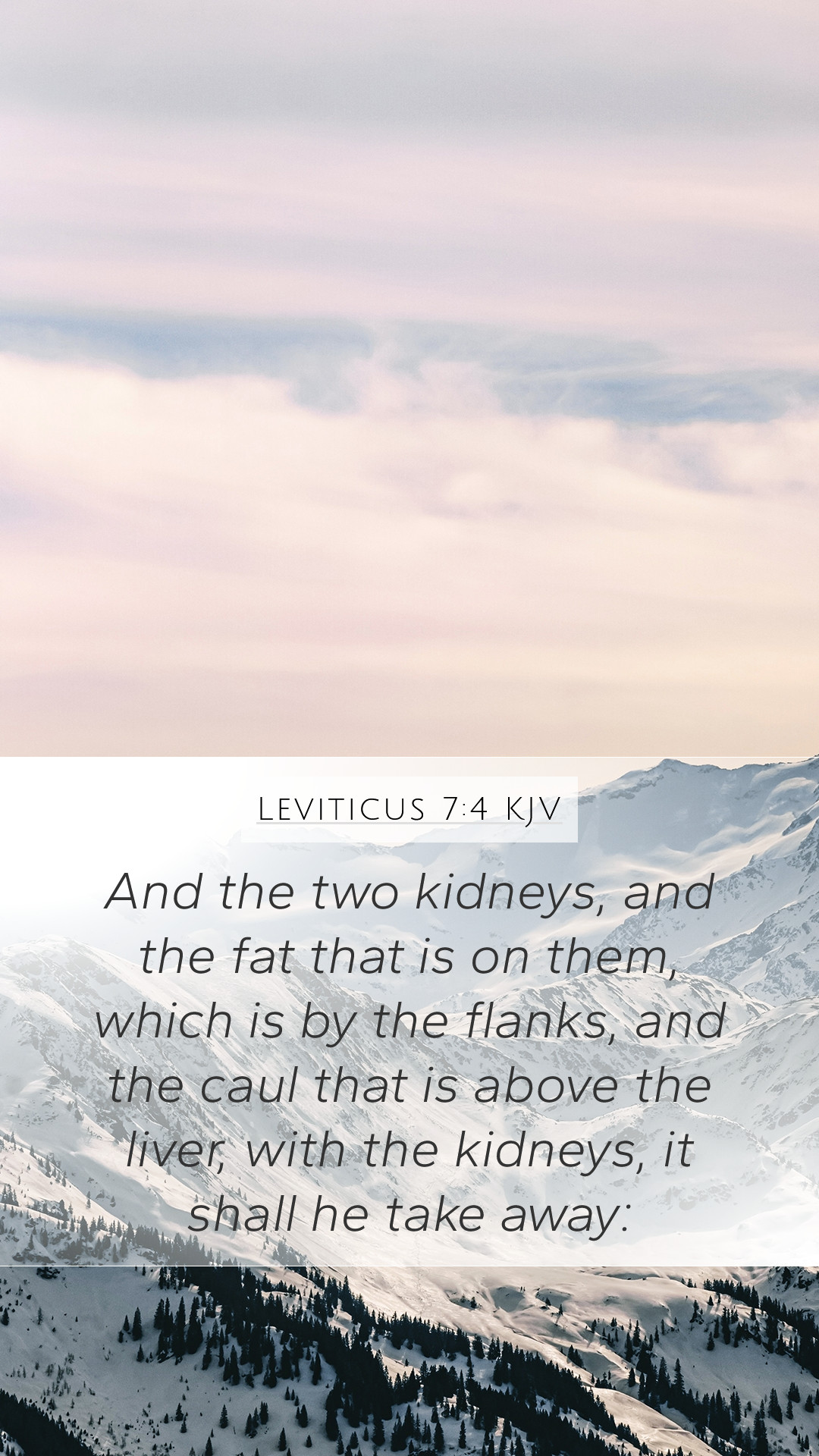Bible Verse Meaning of Leviticus 7:4
Leviticus 7:4 states: "And the two kidneys, and the fat that is upon them, which is by the flanks, and the caul that is above the liver, with the kidneys, it shall he take away." This verse is part of the instructions regarding the peace offering, a significant ritual in the Israelite religious system.
Understanding the Passage
This verse illustrates specific details concerning the sacrificial laws laid out in Leviticus. The kidneys and fat are significant in sacrificial practices as they represented the choicest parts of the offering.
Commentary Insights
-
Matthew Henry:
Henry emphasizes the notion that the fat and kidneys symbolize the best gifts offered to God. They were part of the peace offering, where the offerer seeks communion with God, indicating both gratitude and a desire for continued relationship.
-
Albert Barnes:
Barnes notes the purity and holiness surrounding sacrifices. He outlines that the fat represents the best part, illustrating God’s desire for the finest in offerings. The kidneys signify introspection and internal contemplations as connected to one’s heart and intentions being laid bare before God.
-
Adam Clarke:
Clarke discusses the ceremonial aspects of the sacrifices. He puts forth that the offerings involved precise specifications to illustrate obedience to God’s commands, symbolizing the act of giving oneself wholly. This demonstrates the importance of quality and holiness in offerings to God.
Key Themes and Applications
Leviticus 7:4 highlights several key themes relevant for Bible study insights:
- Obedience: Following God's divine instructions reveals the importance of aligning one's actions with divine will.
- Holiness: Sacrificial laws emphasize God’s holiness and the requirement of purity in worship.
- Praise and Gratitude: Offering the best signifies a heart of thanksgiving towards God for His provision and blessings.
- Symbol of Relationship: The peace offering is a representation of the covenant relationship the Israelites have with God, indicating the importance of communion and fellowship.
Practical Applications
When interpreting this text today, it encourages believers to:
- Examine their offerings: Consider what they are bringing to God in terms of worship, time, talents, and resources.
- Evaluate their relationship with God: Reflect on the nature of their spiritual walk. The passage may prompt a deeper understanding of commitment and obedience.
- Seek Continual Communion: Use this scripture as a reminder to nurture a relationship with God through consistent prayer and acts of worship.
Cross References
- Exodus 29:13 - Instructions on the sacrifices in the tabernacle.
- Leviticus 3:3 - Details of peace offerings and the importance of fat.
- Leviticus 10:14-15 - God’s commands regarding sacrifices and offerings.
Conclusion
In summary, Leviticus 7:4 serves not only as a historical and ceremonial instruction but carries profound spiritual insights applicable in the Christian faith today. It encourages individuals to reflect on how they honor God through their lives and offerings, reinforcing the relevance of Old Testament teachings in contemporary worship and understanding of Scripture.
This commentary blends thoughts on Bible verse meanings, Bible verse interpretations, and Bible verse explanations to furnish a holistic understanding for individuals engaging in Bible study and seeking Bible verse understanding.


